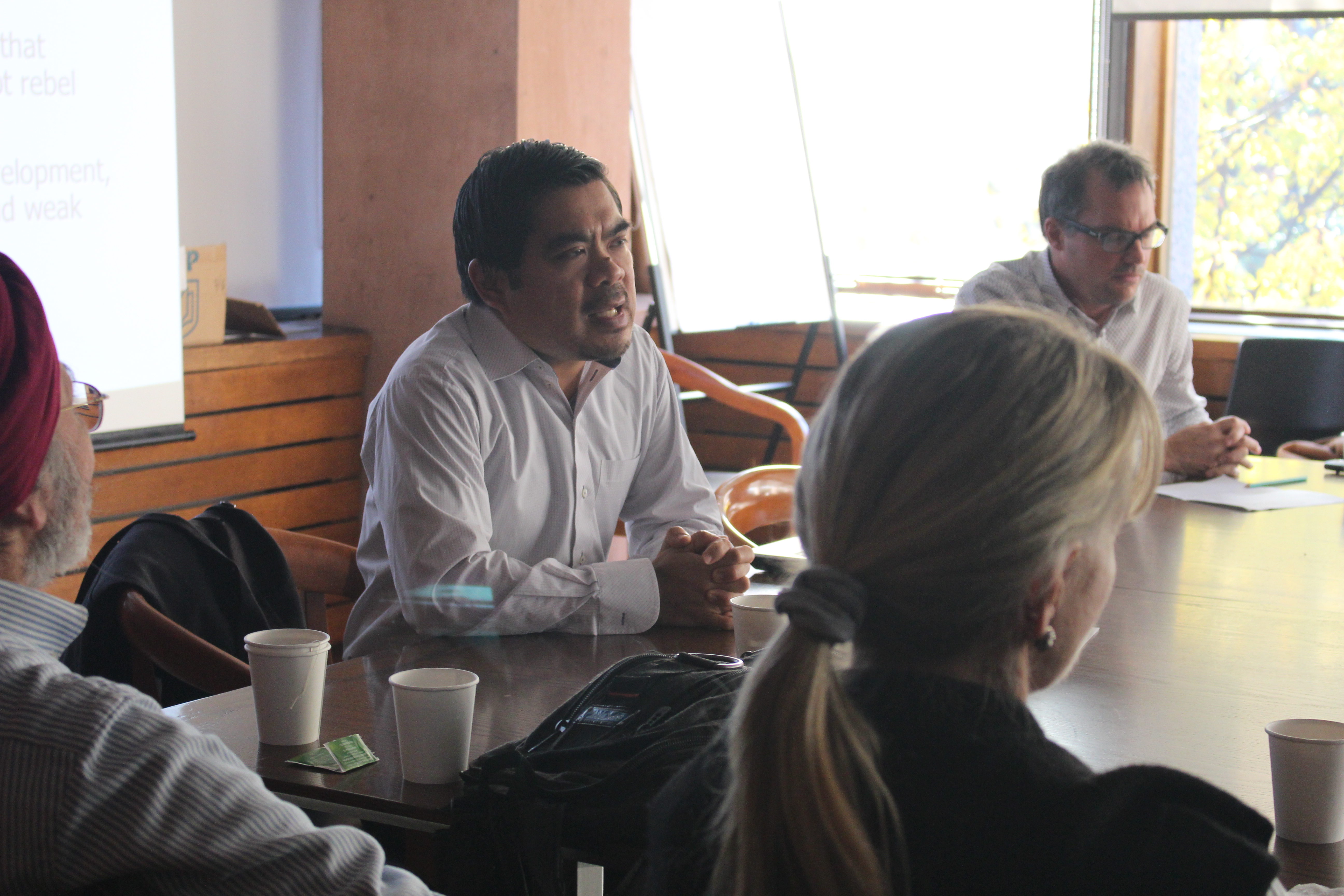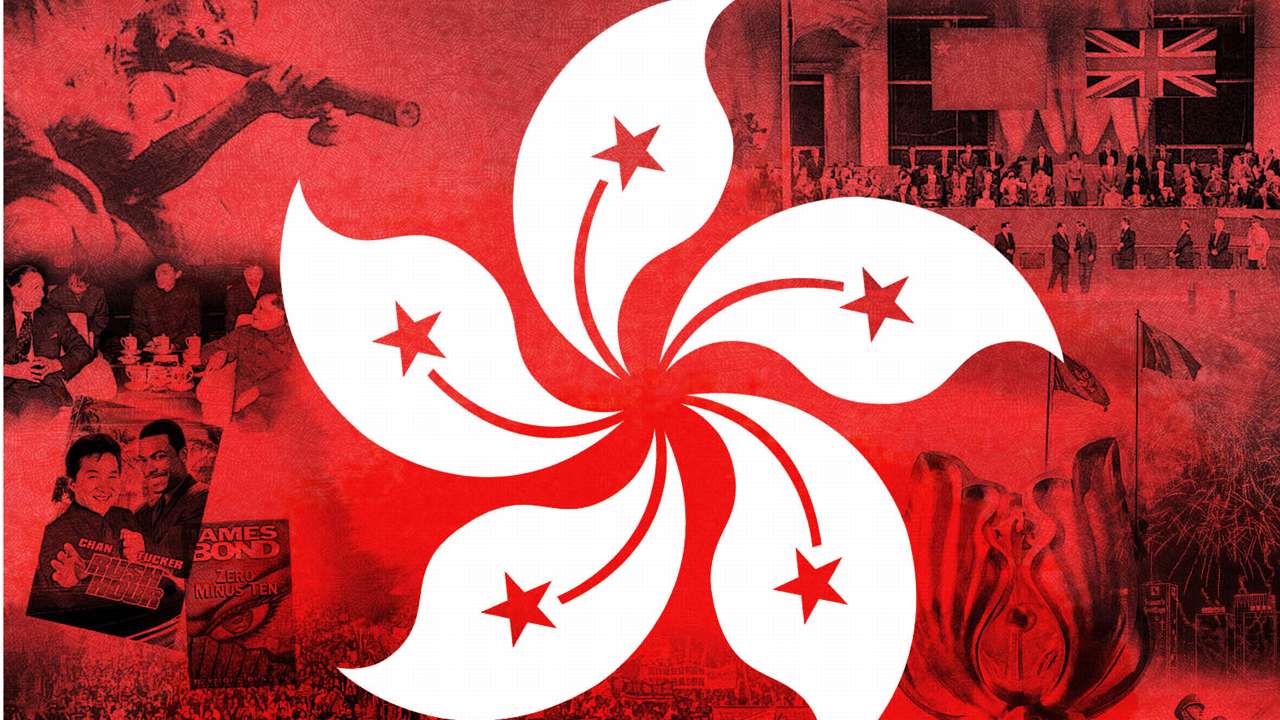Since decolonization began in the post-WWII period, democratization has become an increasingly important topic in Southeast Asia. While there has been steady progress for democracy in the region, democracy is often still challenged by Southeast Asian societies. Throughout the democratic process, the middle classes in these societies have and continue to play a significant part. On October 23, 2015, Professor Erik M. Kuhonta (Department of Political Science, McGill University) attested to this in “Is the Middle Class a Harbinger of Democracy? Evidence from Southeast Asia,” an event hosted by the Centre of Southeast Asian Studies at the Asian Institute, Munk School of Global Affairs.
Over the past two decades, we have seen Indonesia shedding Suharto’s authoritarian regime in 1998 and the release of Aung San Suu Kyi, Myanmar’s symbol of democracy, followed by limited political reform by the military junta. On the other hand, we have also seen social movements against democratic regimes in the People Power Revolutions in the Philippines in 2001, and an ongoing political crisis in Thailand. With such inconsistency, Professor Kuhonta states that the middle class in Southeast Asia is a critical factor in any decisive political developments in the region.
Professor Kuhonta also pointed out the problems involved with applying modernization theory to Southeast Asia. Modernization theory states that there is a positive correlation between economic development and democratization, positioning the middle class as the vanguard group in pushing for political changes. However, modernization theory fails to analyze middle class preferences, and ignores the fact that developing democracies in the region tend to violate liberal values. Most importantly, modernization theory cannot explain why the middle class can be both anti- and pro-democratic. Professor Kuhonta therefore chose to work with a different analytical framework, looking at the relationship between rebellion and state institutionalization instead.
Professor Kuhonta began by stating that countries with a higher degree of institutionalization (that is, a state that provides public goods, stability, rule of law, and social development) generally have a lower possibility of rebellion against the state. In turn, rebellions are more likely to occur in states weakened by corruption and patrimonialism, with a low degree of institutionalization. Professor Kuhonta supported this point by addressing several case studies in different Southeast Asian countries.
His first example was the 1973 Thai popular uprising, which saw the middle class rebelling against the undemocratic, nepotistic regime of Thanom-Praphat-Narong. He then discussed accusations of corruption made against democratically-elected Prime Minister Thaksin Shinawatra in 2006, upon his failure to pay taxes on the sale of Shin Corporation to Singapore’s Temasek Company. In Malaysia, the 1998 reformasi movement saw the middle class challenging Prime Minister Mahathir. Mahathir had been incapable of dealing with the Asian Financial Crisis, and had also concealed his government’s corruption by jailing opposition leader Anwar Ibrahim. Lastly, Professor Kuhonta discussed Singapore, which has the largest middle class population among all the Southeast Asian countries. Challenges or rebellions against the authorities in Singapore have been infrequent; Professor Kuhonta attributes this to strong economic growth, the cooptation of civil society, and strong infrastructure and services.
Evidently, members of the middle class are a significant factor in the Southeast Asian democratization process. Drawing on the relationship between revolts and state institutionalism that Professor Kuhonta proposed, further research could also determine the extent to which the middle class is a mobilizing factor in encouraging their governments to democratize. Professor Kuhonta also remarked that he found some irony from these case studies: the middle class sought stability and development, but also contributed to instability and weak institutional structures. It is also worth noting that even authoritarian ruling parties in Thailand and Malaysia admit to embracing democracy, when incentivized to do so by state and non-state actors.
Ultimately, Professor Kuhonta drew the conclusion that the middle class in Southeast Asia did not behave in a universal or liberal manner, and that state institutionalization was a critical factor in explaining whether or not the middle class chose to rebel.
Arthur Lui is a 2nd year student studying Peace, Conflict and Justice Studies, and Contemporary Asian Studies. Stanley Chia is a 2nd year student studying International Relations and History. Arthur and Stanley currently serve as event reporters and copy editors for Synergy: The Journal of Contemporary Asian Studies.








